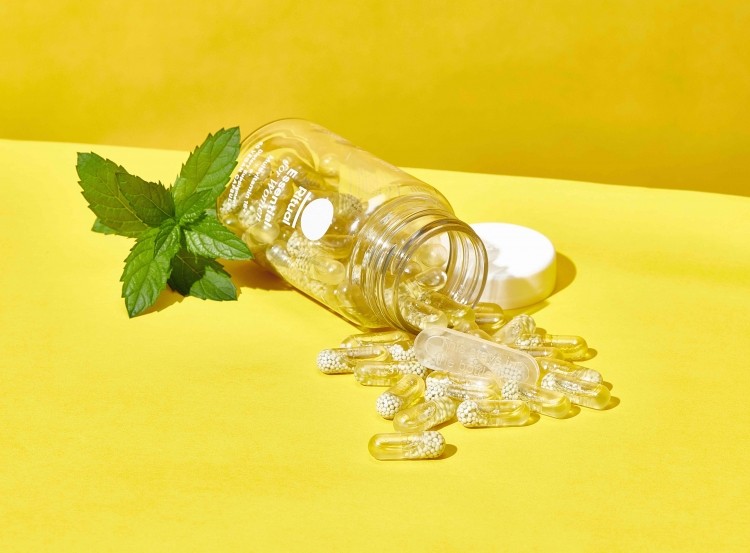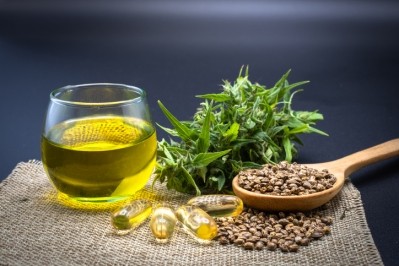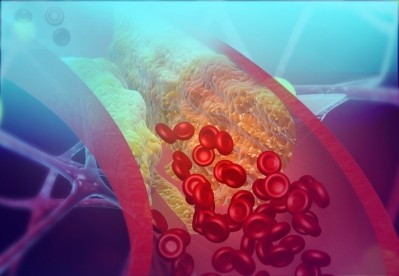Scent product could transform dietary supplement marketing, manufacturer says

The product, called ScentCerts, is manufactured by ScentSational Technologies, based in Jenkintown, PA. The company is the brainchild of partners Barry Edelstein, president and CEO, and Steven Landau, chief technology officer.
Landau said his epiphany came on a skiing trip where his lips became chapped.
“The only chapstick they had was cherry flavored. Then the water from my water bottle tasted like cherry. I was intrigued and took a bite of the chapstick and discovered it had no flavor. It had all been done with scent,” Landau told NutraIngredients-USA.
That led to an idea for scented water bottle closures, a patent on that idea, and the company was off and running.
Evolution of marketing concepts
Landau credited much of the intellectual underpinning of the concept to Danish business commentator Martin Lindstrom and his book Brand Sense. Lindstrom argued that the marketing of consumer products has gone through an evolution. In the consumer landscape that emerged after WWII products were first marketed based on their uniqueness. Then tying emotions to certain products came to the fore, followed by an emphasis on the power, commitment and ethos of the companies making the products. Think of how Nike or Patagonia have marketed their products over the years. That was followed by the brands themselves becoming the story, followed in turn by consumers taking matters into their own hands and making their engagement with the brand part of the selling process.
While all of these concepts still function in the marketplace, Lindstrom asserted that they are starting to lose relevance. The next revolution, which he called the Holistic Selling Process, will see products marketed on how well they connect with all five of the customer’s senses.
Landau also pointed to a well known phenomenon called the Proust Effect, after the French novelist’s oft cited but seldom read masterpiece Remembrance of Things Past (or In Search of Lost Time) in which the taste of a small cake dipped in tea evokes a childhood memory that ramifies into seven volumes.
“People remember smells from very early ages,” Landau said. “The left side of the brain is more logical. It’s where the gate keeper functions are located. The right side of the brain is more impulsive and creative. That’s where scents are processed.”
“They are processed in the brain’s limbic system, where emotions, memories, impluses, even buying decisions are made,” he added.
The marketing of dietary supplements has gone through an evolution, too, but the brand concepts behind these products are for the most part years behind the rest of the CPG field. Many dietary supplements are still packaged to look like generic OTC goods, perhaps in an effort to make them look more serious or efficacious.
And once the bottle has been opened consumers are expected to choke down whatever is inside simply because it’s good for them, sort of the old cod liver oil on a spoon phenomenon writ large. As far as organoleptic qualities are concerned, product development in the dietary supplement space has mostly been concerned with wringing as much of the scent or taste out of the raw material as possible (or hiding it within a capsule or softgel). Many herbs are bitter, astringent or have aggressively earthy flavors, a number of vitamins are malodorous and some marine or algal oils can be downright noisome.
Creating an aromatic experience
Edelstein and Landau wanted to change that. Their goal was to make the initial experience of taking a dietary supplement something consumers would remember with pleasure, not a trial they were willing to endure because they believed in the product’s promised health benefits.
The ScentCerts product comes in a number of different scents that Edelstein said are assembled from all natural ingredients and are backed up with organic, kosher, halal, vegan and non GMO certifications. The scent constituents are packaged in a polymer delivery vehicle that looks like a largish softgel or is shaped like a little heart (a third option looks like a standard desiccant package).
The technology is designed to release the scents gradually and can last for years in the bottle, the partners said. The library of scent/flavors the company has assembled is tailored to some of the bigger challenges dietary supplement ingredients can present. The company claims its scent technology outperforms other approaches such as flavored capsules or adding flavors to the base ingredients themselves.
“We spent a good three years developing this product. A lot of time and energy was spent evaluating the dietary supplement space,” Edelstein said.
Signing up a signature client
The company has a number of other scent products for other markets aimed for use in nebulizers or scented inks for packaging as well as the manufacture of scented custom injection molds. Edelstein said many of the company’s clients have been reluctant to admit that they’re using the technology.
That changed when the partners worked with vitamin brand Ritual to improve the consumer experience with a sku that contained an algal oil constituent.
“When reinventing the multivitamin, it was important to us that the experience be an enjoyable habit that can turn into a Ritual. Scent and taste play a major role in that,” said Katerina Schneider, founder and CEO of Ritual. “For example, we use Omega-3 DHA vegan algal oil that can have a seaside aroma. We’re committed to using high-quality nutrient forms, no compromises, so we added mint and lemon-essenced ScentCerts to our bottles to create a fresh experience.”
Retaining customers as a way of cutting costs
Edelstein said when the cost of the technology is considered one thing that should be figured into that calculation is the cost of acquiring each new customer. More of those new customers can be retained if they like taking the product from the outset.
“Initially the mentality was we are putting an ingredient list together that is good for you and the fact that it smelled bad and tasted bad or had no taste at all was inconsequential,” Edelstein said.
“But now consumers are becoming more picky. They want a pleasant experience,” he added.
Landau said the choice of what scent to employ can even be matched to how the product will be used, to help evoke the mood the product is intended to support.
“We just came out with a new flavor called Violet Creme that is going into sleep, mood and anxiety type supplements,” he said.
















